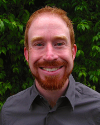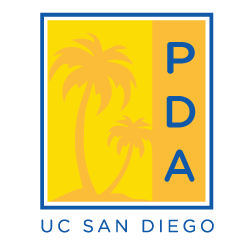
Dan Pollard, Ph.D.
Assistant Professor, Department of Biology | Western Washington University

- Interview Overview
Interview Overview
Interview and Editing by: Alexandra Bortnick
1. Please list your previous department at UC San Diego and provide a brief description of the research you conducted?
I worked in Scott Rifkin's lab in the Ecology, Behavior, and Evolution Section of the Division of Biological Sciences. The Rifkin lab works on problems that are at the interface of Systems Biology and Evolutionary Genetics. I brought a new project to the lab which was addressing the role that natural variation in protein production and degradation plays in gene expression dynamics.
2. Please describe your current job profile?
I am starting as an Assistant Professor in the Biology Department at Western Washington University. My responsibilities are to run a small research lab of undergraduate and masters students and to teach Genetics, Biostatistics, and a senior seminar course.
3. What made you decide to transition into your current position?
My wife and I had been working for many years as postdocs and it seemed like it was time to start looking for positions. We were looking for positions at institutions that had a strong focus on undergraduate education but still had active research programs. We were happy to have options at the end of the interview season and we selected WWU because it seemed like the best fit for us in terms of responsibilities, resources, and quality of life.
4. Apart from the research you conducted, do you feel like anything in particular has helped you to acquire your current position?
One never knows for sure about such things. The fit for the position was very good (i.e. the job announcement described my interests and experiences very well). I was certainly very active in developing my pedagogical knowledge and skills during my postdoc (e.g. the STEM Education & Diversity Discussion Group). I have consistently taken on leadership roles throughout my career. I have also done some service work. So my application had well substantiated assertions of experience in research, teaching, leadership, and service, but I don't know specifically what made my application successful at some places and not successful at others.
5. Please list some of the most striking similarities and differences between your post-doc and current position?
It is hard to say at this point. I am just trying to get my first class organized and get my lab set up. I am certainly spending less time thinking about my research projects. Perhaps down the line after I get into a rhythm with teaching it won't be so different.
6. Is there any specific challenge (during the entire process of transitioning) that you would like to highlight and if so how did you overcome it?
Interview season was very hectic for me. I was still submitting applications when I started doing my first interviews and I was submitting a grant with my advisor at the same time. I worked out very detailed time management strategies and gave myself lots of hard deadlines. I made a few mistakes but thankfully it all worked out.
7. Please describe your goals and ambitions for the next 5 years?
My primary goal is to enjoy what I'm doing as much as possible. My secondary goal is to be as effective of a teacher and mentor as I can be. Hopefully, if I keep my attention on these two goals, I'll set myself up for a secure position.
8. What do you feel you could have done more, as a postdoc, to help prepare you for or acquire your current position?
Because I was interested in teaching focused positions, it would have been good for me to have spent more time thinking about how I would teach the core subjects in my field and which speciality courses I would like to develop. I managed to put my ideas together on courses during the interview process but it would have been helpful to have sorted this out better ahead of time.
9. What do you feel is the most important advice you can give to a current UCSD postdoc in order for them to obtain a position such as yours?
Anecdotally, I feel that it is important to be able to demonstrate a consistent interest in both pedagogy and research for a position like mine. Postdocs are typically set up just for research, so it requires initiative to engage with teaching while doing your full time research job. Teaching a class is a great experience (I did it my last year in grad school) but it is also a huge time commitment for a postdoc. There are other options though. I really enjoyed my experiences at UCSD reading and discussing education research papers with the STEM Education & Diversity Discussion Group. I also gained a lot of practical knowledge and experience working with fellow biology postdocs on developing and teaching a TA training workshop on inclusive pedagogy. Neither of these activities existed five years ago. They were developed by postdocs who were interested in pedagogy and wanted to get experience. So my advice would be to ask around about pedagogical activities that fit your schedule and needs, and if you don't find any that suit you, look for like-minded postdocs and start something new.
